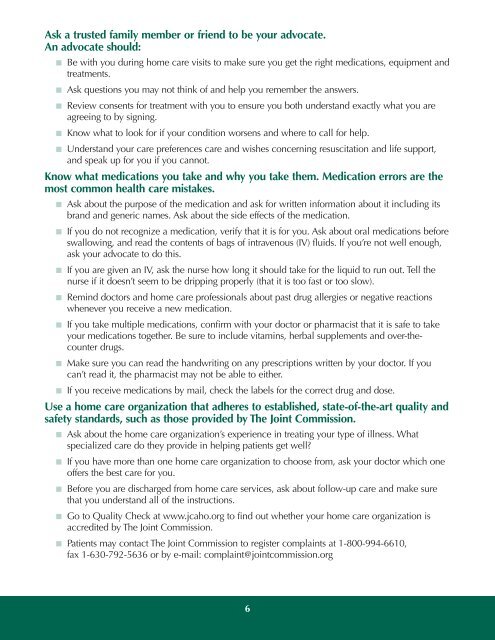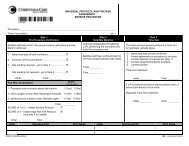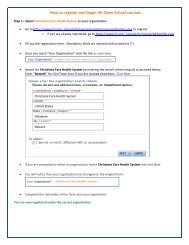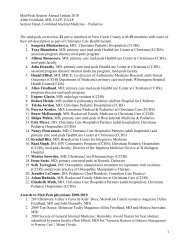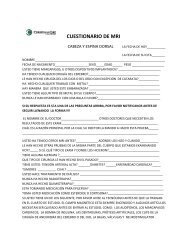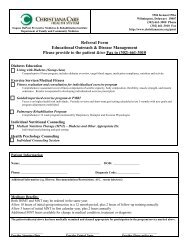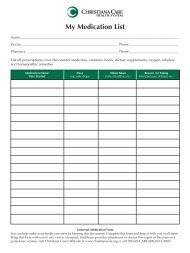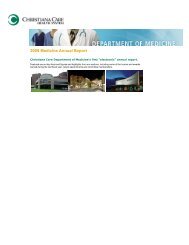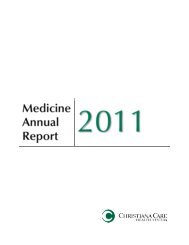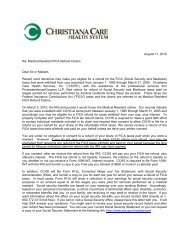Community resources: - Christiana Care Health System
Community resources: - Christiana Care Health System
Community resources: - Christiana Care Health System
You also want an ePaper? Increase the reach of your titles
YUMPU automatically turns print PDFs into web optimized ePapers that Google loves.
Ask a trusted family member or friend to be your advocate.An advocate should:Be with you during home care visits to make sure you get the right medications, equipment andtreatments.Ask questions you may not think of and help you remember the answers.Review consents for treatment with you to ensure you both understand exactly what you areagreeing to by signing.Know what to look for if your condition worsens and where to call for help.Understand your care preferences care and wishes concerning resuscitation and life support,and speak up for you if you cannot.Know what medications you take and why you take them. Medication errors are themost common health care mistakes.Ask about the purpose of the medication and ask for written information about it including itsbrand and generic names. Ask about the side effects of the medication.If you do not recognize a medication, verify that it is for you. Ask about oral medications beforeswallowing, and read the contents of bags of intravenous (IV) fluids. If you’re not well enough,ask your advocate to do this.If you are given an IV, ask the nurse how long it should take for the liquid to run out. Tell thenurse if it doesn’t seem to be dripping properly (that it is too fast or too slow).Remind doctors and home care professionals about past drug allergies or negative reactionswhenever you receive a new medication.If you take multiple medications, confirm with your doctor or pharmacist that it is safe to takeyour medications together. Be sure to include vitamins, herbal supplements and over-thecounterdrugs.Make sure you can read the handwriting on any prescriptions written by your doctor. If youcan’t read it, the pharmacist may not be able to either.If you receive medications by mail, check the labels for the correct drug and dose.Use a home care organization that adheres to established, state-of-the-art quality andsafety standards, such as those provided by The Joint Commission.Ask about the home care organization’s experience in treating your type of illness. Whatspecialized care do they provide in helping patients get well?If you have more than one home care organization to choose from, ask your doctor which oneoffers the best care for you.Before you are discharged from home care services, ask about follow-up care and make surethat you understand all of the instructions.Go to Quality Check at www.jcaho.org to find out whether your home care organization isaccredited by The Joint Commission.Patients may contact The Joint Commission to register complaints at 1-800-994-6610,fax 1-630-792-5636 or by e-mail: complaint@jointcommission.org6


